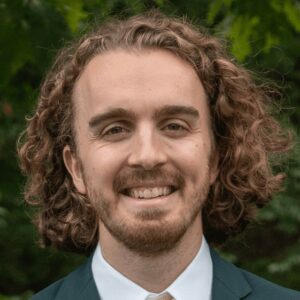Lunch, Bocce, and Electrochemical Systems for Large-Scale Energy Storage
4020 Technology Place
Fremont
California 94538
Our Speaker: Nicholas Cross, Postdoctoral Researcher
Lawrence Livermore National Laboratory, Livermore, CA 94550
Join us at 11:30 AM for a buffet lunch and bocce on the spacious outdoor Patio at The Clubhouse (Mission Peak Sportplex)
The formal presentation will start at 12:30 PM, with plenty of time for discussion and networking before and after.
Registration is required for in-person participation.
The cost is $25/person for professional members and guests; the cost for students and unemployed members is $12.50/person; please register by September 15th if possible so that we can provide a count to the venue.
This event will also be streamed on Zoom – please register for FREE to receive the Zoom link.
Download the event flier HERE.
Abstract:
The United States has set a goal to decarbonize energy production by 2035 and the entire economy by 2050. Multiple analyses estimated that to do so requires significant investment in energy storage technologies to time shift when the energy is produced by sources such as wind and solar to when the energy is consumed by users of the grid. Historically, energy has been stored using pumped hydropower which is limited geographically and by long startup/shutdown times, and therefore is unlikely to meet all the energy storage requirements for a decarbonized 2050 economy. Electrochemical technologies are well-suited to meet the needs of the grid of the future due to their capability to be sized to fit a range of power and energy applications as well as being able to respond to load changes almost instantaneously. Technologies of keen interest and high maturity are lithium-ion, sodium-ion, and multiple flow battery chemistries. In this talk, I will discuss the different battery chemistries under development by groups ranging from academia to industry. The fundamental mechanisms, material challenges, and economic drivers of each technology will be presented to provide a wholistic picture of each unique chemistry.
This work was performed under the auspices of the U.S. Department of Energy by Lawrence Livermore National Laboratory under contract DE-AC52-07NA27344. LLNL-ABS-868591
About the speaker:

Nicholas is currently a postdoctoral researcher at Lawrence Livermore National Laboratory (LLNL). His research combines experiments and computation to build new models for chemical and electrochemical technologies for a zero-carbon future to accelerate their characterization and development. He received his bachelor’s in chemical engineering from Oregon State University, where he conducted research on carbon treatments for use in vanadium redox flow batteries. He received his master’s and PhD in chemical engineering from Penn State University where he developed thermally regenerative ammonia batteries for converting low-temperature heat to electricity using spectrochemical ligands in a redox flow battery. In his current role at LLNL, he is researching methods for improving lithium batteries under extreme conditions, novel ionomers for electrochemical conversion of CO2 to value added chemicals, and systems analysis of next generation carbon capture solvents.
